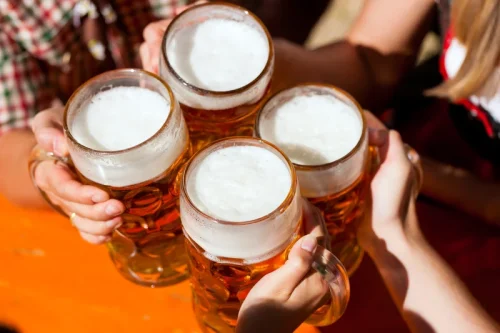
Peer pressure begins as early as age 10 with the forming of social groups in elementary school and increases during adolescence, throughout junior high and high school. They should know that there’s nothing wrong with saying “no” to something, and they have every right to do so if they are feeling pressured to do something they don’t want to do. Teens with high self-esteem accepts themselves and the way they are, as well as respect themselves. Building good self-esteem will help them stay away from groups with negative influences. For example, ask yourself — do certain friends bring out my best self?
How does peer pressure affect teenagers?
- Contrary to popular belief, though, peer pressure can also give rise to positive behaviours!
- Rising above peer pressure means not giving in to the pull of others to act in a certain way.
- However, peer pressure can also be positive and encourage better academic performance and healthy habits.
- When we feel that we do not fit in, we may consequently find ourselves avoiding social situations.
- If you know there’s going to be alcohol or drugs at a party, make other plans.
While it can be tempting to give in when all your friends are doing something, it’s never worth it. There are several different types of peer pressure that kids and adolescents may experience. Types of peer pressure include spoken and unspoken, direct and indirect, and negative and positive. Peer pressure plays a pivotal role in a person’s mental health; it can force them to do something which can be either less harmful or have more serious consequences. Giving in can have minor consequences, like dressing a certain way, or more serious ones, like unsafe substance use at the time of how to tackle peer pressure. Turn to parents or guardians for backup while dealing with peer pressure situations that feel beyond your coping skills.
Ways to Avoid Peer Pressure

This region controls decision-making, impulse control, and motivation. Teens are known to engage in more risky behaviors because they do not always understand the future consequences of their actions. how to deal with peer pressure Talk out any peer pressure you’re experiencing with other friends who are also feeling the squeeze. A great way of handling peer pressure is to spend your time doing activities outside of work.
Is All Peer Influence Bad?
You don’t need to sound standoffish, but, at the same time, you should be clear about your likes and dislikes. This will attract independent-minded people into your circle of influence. When dealing with peer pressure, standing your ground and ensuring that you always think things through can help you turn the situation to your advantage. Learning how to handle peer pressure at work will help you control its influence on your actions and, at the same time, show people that you can effectively deal with stress. Coping with peer pressure improves your chances of achieving your goals and excelling in your career.
What are the effects of peer pressure?

As a college student, recognising when you might benefit from different types of therapy is crucial for your overall well-being. By Michelle PugleMichelle Pugle, MA is a freelance writer and reporter focusing on mental health and chronic conditions. As seen in Verywell, Healthline, Psych Central, Everyday Health, and Health.com, among others.


Stay away from people who pressure you into making decisions that incur negative consequences for yourself or others. In some cases, negative peer pressure comes from people whom we are unable to avoid entirely, such as schoolmates or colleagues. When you’re a teen, it’s normal to want to fit in and have friends. But when your peers make unhealthy choices and pressure you to do so, that’s called negative peer pressure. While it can be a common part of your teen years, it’s still possible to make healthy decisions. One common social media misrepresentation is when people post the «best» of their lives, creating a false sense of reality.
- Seeking professional support goes beyond normalising — it can unearth root causes behind sensitive topics that peers may unconsciously prey upon.
- Peer pressure occurs when a peer group exerts direct or indirect pressure to do certain actions.
- It can impact their self-esteem, mental health, behaviors, the activities they enjoy, academics, and more.
- Handling peer pressure can get you to do something you might not otherwise do.
Negative peer pressure is when someone who is a friend or part of a group you belong to makes you feel that you have to do something to be accepted. It’s the negative peer pressure that we usually think of when the phrase peer pressure is used. When you give in to negative peer pressure, you often feel guilty or disappointed with yourself for acting in a way that goes against your beliefs or values.
Apart from the above, difficulty sleeping and low moods are also plausible signs. Do note, however, that many of these signs may be due to other reasons, such as physical and mental health conditions. Should you be concerned about any of the signs listed above, consult a professional therapist. Saying «no» can be hard, but it’s necessary to set healthy boundaries in relationships. If someone persistently pressures you to do something, you can try telling them how it affects you.
Lean on people for support, like your friends, family, or a therapist. Fortunately, social media can also promote positive peer pressure through groups that support charitable causes or pages that highlight inspirational stories. Access to social media also allows us to stay connected to far away family and friends in ways that were not possible before. «Teens have so much on their plates,» says Stacie Goran, LPC, LCDC, Teen Recovery Program Manager at Children’s Health℠. Peer pressure is the influence exerted by the majority on a person, to the point of it being capable of modifying their thoughts, feelings, and behaviors. Keep yourself in hobbies that inspire you, like art, sports, music and anything that makes you really happy.
You may also take the chance to discuss the topic with your child when someone happens to bring it up. Spoken peer pressure occurs when an individual is asked or convinced by others to engage in a certain behaviour. Often, the greater the number of people trying to persuade the individual, the greater the pressure. As such, in a group setting, the individual is often particularly susceptible to the influence of the group due to the latter’s strength in numbers. Conversely, in a one-to-one setting, the individual may not be as easily wavered as they are better able to stand their ground and act in accordance with their values. For students, a sudden drop in academic grades could indicate the presence of negative peer pressure.
